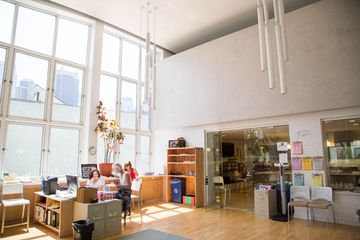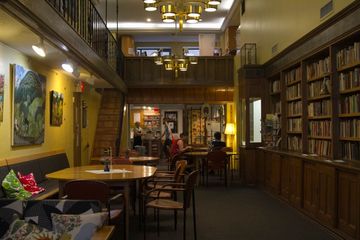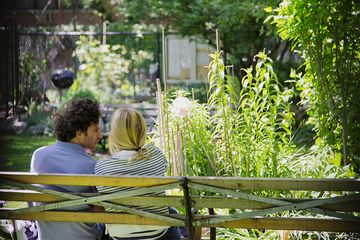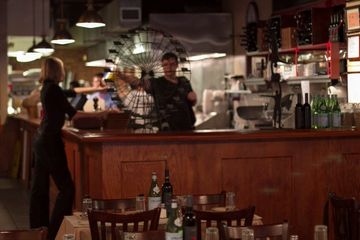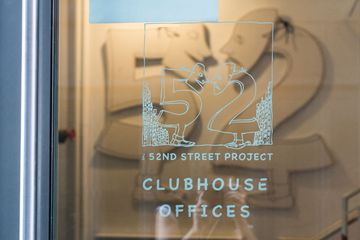In the late 40's, a group who had suffered from mental illness started "We Are Not Alone" dedicated to helping others who had shared their troubles. They sought to fight against the stigmatization of the mentally ill. In 1948, "We Are Not Alone" developed the idea of Fountain House, an organization that would help the mentally ill recover by giving them an opportunity to actively live, work and learn. When we visited Fountain House, we were given a tour and introduced to the organization and its workings. Having been a member for a little less than a year, the gentleman speaking with us said that he still felt green at Fountain House, but nevertheless at home. Fountain House staff carefully selects people living with mental illness to join their community. Together, they help run the organization by working in one of the eight Units (Communication, Culinary, Education, Employment, Horticulture, Reception, Membership, and Research). We walked around the two connected buildings that make up Fountain House to see each Unit in progress. About 250 to 300 members and staff work daily to contribute to the operation of Fountain House and build communities in which members develop close-knit relationships. While touring Fountain House, the attractive facilities and congeniality of the members left an impression on me. Everyone in each unit seemed to be busy performing a task – sweeping the floors, making a call, and folding the monthly newsletter. Their approach to helping people with mental illness relies entirely upon members' participation and active work. The sense of belonging and purpose fostered at Fountain House has been proven to reduce the hospitalization of patients and improve the likelihood of completing their studies and, ultimately, being able to secure a job outside of the House. The organization has dozens of sister programs worldwide and has helped hundreds of thousands of people improve their lives, breaking the cycle of stigmatization and isolation.
